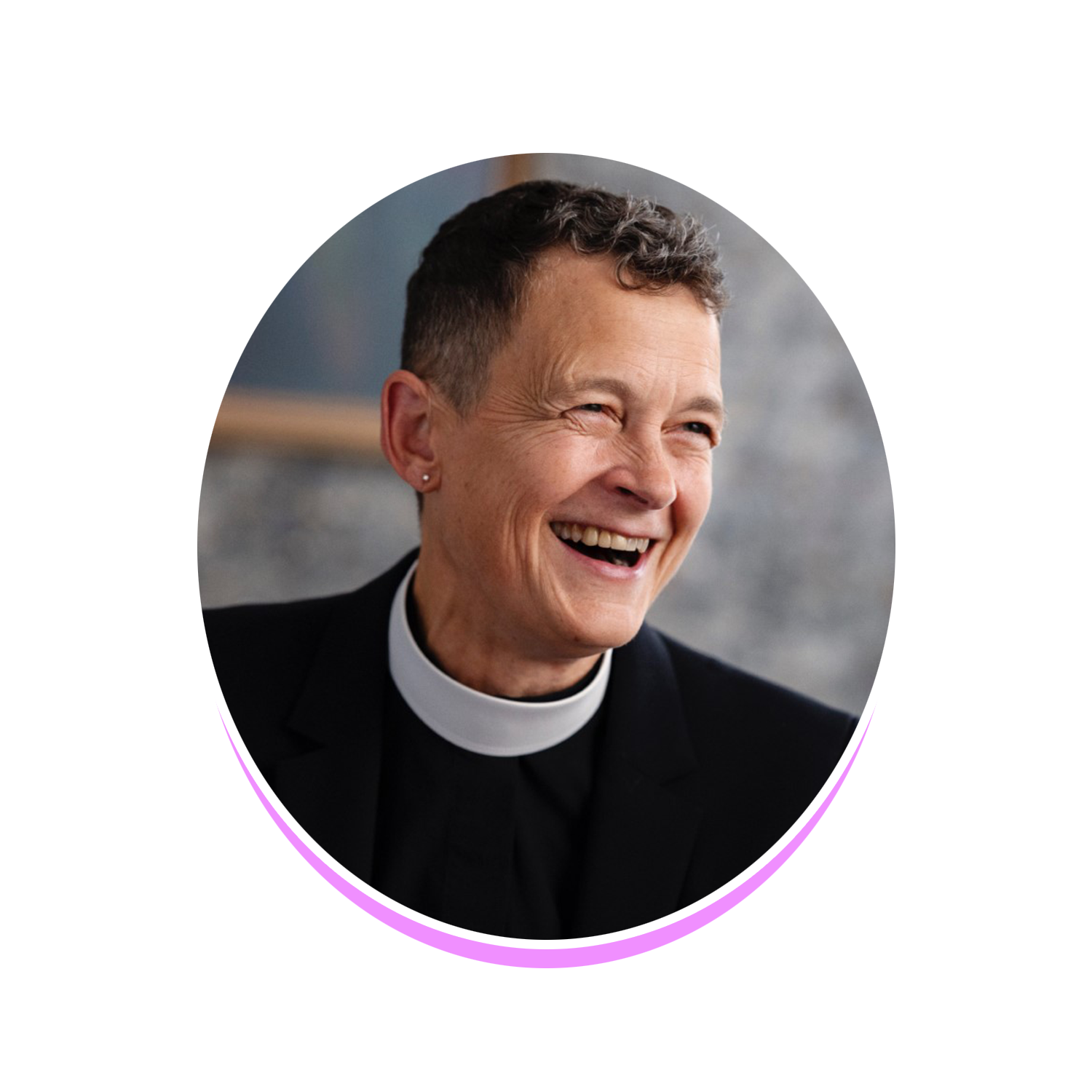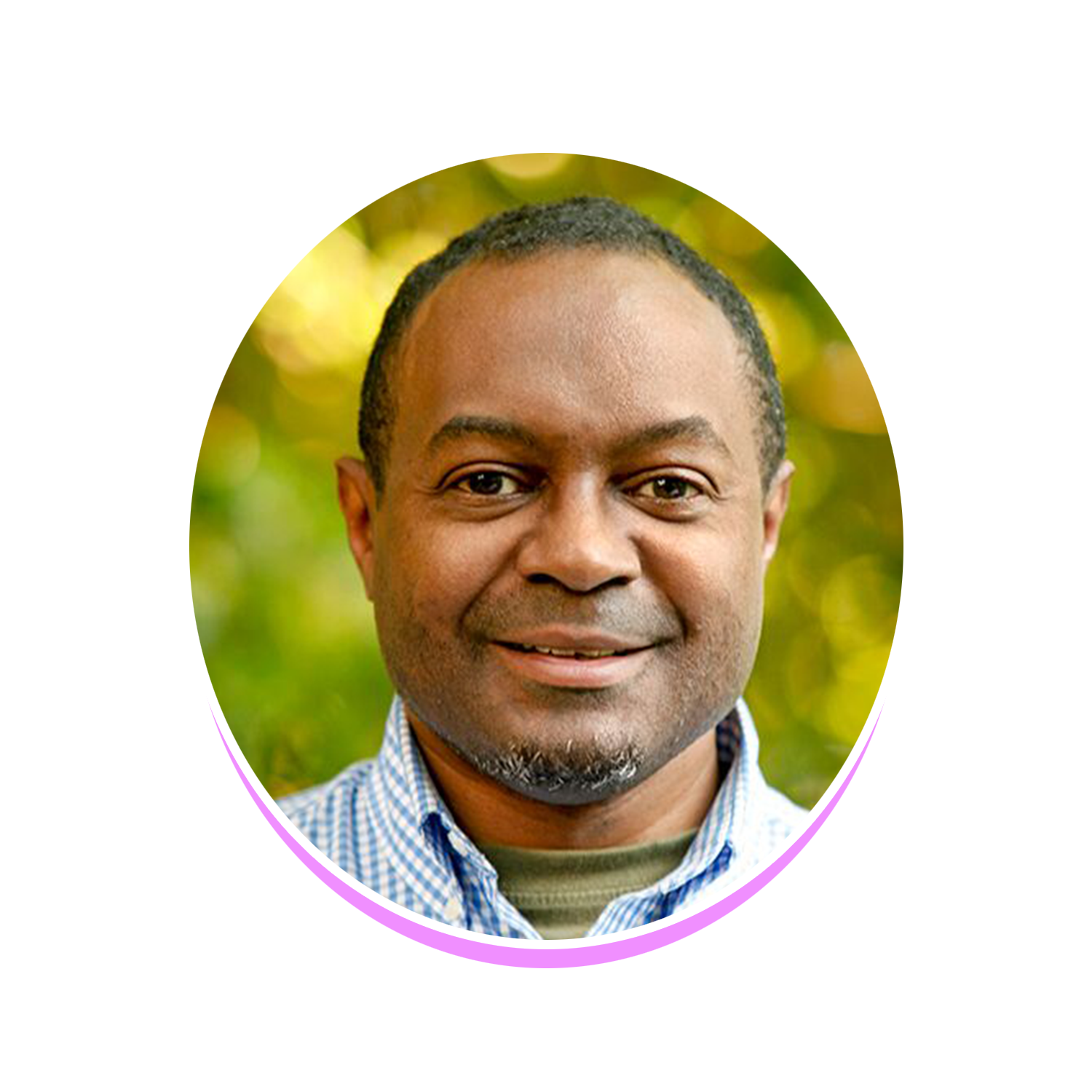The Prophet Ezekiel
Ezekiel 37:1-14
Throughout the book of Ezekiel, he finds himself, along with others, trying to figure their way through the exile after the Babylonians had attacked Jerusalem. The prophet Ezekiel is known to have some fantastical and vivid visions of the God’s presence in the midst of their exilic experience. These visions take him on a trip where God plays out a drama of exile, judgment, death, and restoration. Most notably are the visions of the spinning chariot of fire surrounded by multi-faced creatures and then the vision of the valley of dry bones. The visions began when Ezekiel was sitting by the riverbank and continued through the eventual restoration of Israel.
In chapter 37, Ezekiel has one of his famous visions of the valley of dry bones. In popular interpretation, it reads as God filling Israel’s people with life after they had become spiritually distant or dead. Adding a layer of Queer interpretation, we can understand it today in a way that normalizes and nuances death as part of living. God asks Ezekiel, “Mortal, can these bones live?” Throughout the verses is a rhythm of God speaking, Ezekiel parroting, and life happening. They speak of bones, sinews, and flesh and God tells Ezekiel that God will put breath into these skinned, tendonous skeletons. Ezekiel told the dry bones what God had said about the breath, sinews, and flesh, and this happened: the bones, breath, sinews, flesh came to life. Life is brought out of the valley of dry bones, out of crisis and chaos. Life is the way out through such a time as this.
Life is brought out of the valley of dry bones, out of crisis and chaos. Life is the way
outthrough such a time as this.
God reminds Ezekiel over and over again that he, that we are mortal—we are breakable, we are delicate, we are intricate, we are vulnerable, we are alive. One of Ezekiel’s visions depicted God leaving Jerusalem because of the idolatry that was taking place. In all of humanity’s epic story, there is a temptation to idolize being invincible. This invincibility comes at the risk of exploiting and oppressing others in order to ensure safety and privilege. This invincibility also comes at the risk of abandoning ourselves and abandoning the ability to see each other at Creation’s depth.
“Can these bones live?” Of course, they can, but why could God be asking this question? My first question would be, what does it mean to live? God made sure to reiterate that it’s not just our physical bodies that make us, but God’s breath centers us towards our embodiment. God lived every part of this life—the parts that are mundane, inconvenient, physically painful, emotionally painful—God wept— and asked the questions many ask after their world is changed by their own version of exiles— “can these bones live?” It was a question God asked, rhetorical or not, that was meant for us to think about.
God made sure to reiterate that it’s not just our physical bodies that make us, but God’s breath centers us towards our embodiment.
When we “leave” our bodies, we leave because we’re afraid, sad, angry, anxious, you name it. We ask ourselves, “why would I want to go through that if I could avoid it?” Sure, that’s one way to see it, but the old saying goes, if you cut yourself off from one emotion then you cut yourself off from joy and happiness, too. To live the parts of life that are mundane, inconvenient, physically painful, and emotionally painful—that’s living, too. As a pediatric hospital chaplain, I encounter many loved ones who begin to cry or become tearful or get mad, and they apologize. They apologize for hurting, for breaking, and for falling apart. In times of fear and grief, what if we simply let those be what they are…fear and grief. But to sit with those feelings goes against everything this world, full of power and privilege, teaches us. If you don’t let it hurt, then you’re winning. Distract yourself with money, with material comfort, with the idea that your life is better than someone else’s. Just don’t give into the discomfort. Then you’re left with a valley of dry, dry bones.
In earlier chapters ruaḥ (breath, spirit) appears when Ezekiel talks about the wind coming from different directions, and in chapter 37 the ruaḥ describes the breath within the body—the very breath that God breathed into us in Genesis. God’s breath fills us with the ability to love, to have hard conversations, to use our voice, to disarm hate, to live, to die, to be a good friend, to be a good partner.
God reminds us that we are simply…people. We are strong, we are flimsy, we are intricate, we are breakable, we are vulnerable, and we are full of life and our own lived experiences.
To be Queer, in this perspective, is to is subvert the feeling that humanity is invincible, that we can be anything except mortal. “O Mortal, can these bones live?” This resounding invitation to ponder is integral to Ezekiel’s vision. It’s rhetorical in nature, but perplexing in its answer. Queer and marginalized people have traveled through spaces that have certainly been a valley of dry bones, places that they’ve realized may no longer feed them. But, like all divine stories, there’s always a sense of hope. If we queer the perspective that it’s simply between physical life and death, then what we get is embodiment and community. It’s not about the valley, it’s not about a scary scene of un-skinned skeletons. It’s about how we inhale and exhale God’s breath, our breath, into this life and for others around us.
If we queer the perspective that it’s simply between physical life and death, then what we get is embodiment and community. It’s not about the valley, it’s not about a scary scene of un-skinned skeletons. It’s about how we inhale and exhale God’s breath, our breath, into this life and for others around us.
In my times as a chaplain, I’m reminded of a mother in labor, in her most painful of experiences, being surrounded by the chorus of voices reminding her to breathe. Queer bodies are embodied bodies. Living vulnerably and honestly, is to experience the very life that are told they don’t deserve or shouldn’t live.
We must be honest about our mortality so that we can advocate for one another. Being alive feels more real now than ever. Daily heartbreaks from daily mass shootings, daily disappointment from daily microaggressions, daily tears from daily exhaustion—all of this is very real, but how do we stay in our bodies when we’re the most afraid. God invites us to stop abandoning ourselves when living gets too real. Like a mother in labor, breathe. Like walking in the door before work, breathe. Like meeting with family that are difficult, breathe (deeply!). In this valley of dry bones, in this valley of tumultuous times, God puts breath into us and we are invited to exhale that into the world so that we may inhale it from one another. If we hold in God’s breath to keep for ourselves, maybe it makes us feel invincible (for as long as you can hold your breath), then we are not truly alive the way God intends for us to be.
What I’ve learned from myself and my Queer and marginalized siblings is that we have nothing to lose, so all we can do is live honestly and vulnerably. We have nothing to lose, we’re already painfully and joyfully mortal. There are actionable things we can do to queer the system that oppresses our siblings, but if we are not checking in daily or weekly about how we’re doing, then we cannot be there for one another. You have to be you in the end because that’s who God wants us to be, not a ghost, not a valley of dry bones, but all of the broken and whole parts of you.
You have to be you in the end because that’s who God wants us to be, not a ghost, not a valley of dry bones, but all of the broken and whole parts of you.
This series is about a Queer interpretation of the prophets, and what is more prophetic than leaning into life in a world that exploits our fear of it. Many voices that attempt to silence myself, you, or our Queer siblings hope to shrink us down so small that we wither away. It is Queer to lean into living, from being proud of who you are to crying when the day has taken its toll. When you do the hard thing, when you let life crush and restore you, then there’s no disappearing. The valley of bones is about letting go of fear and accepting that God’s breath will and is endlessly rooting for you and rooted in you.
When we were created, God formed us from the soil and filled us with God’s divine breath—we are alive every time we inhale and exhale. God’s breath is there in every weeping moment, grieving moment, laughing moment, yelling moment, singing moment, joyful moment—God’s breath is healing. Our mortality only means that we have visceral ways to know that God is with us, within us, and will continue to be with us. With God’s breath within us, we can use it to speak truth, to cry when the world feels like it’s crashing down, we can prepare for the unknown, we can share joy and laughter with one another. We’re full of God’s breath, so may we live as though that’s all we’ve got to offer one another.

Rev. Julianna Whitson (she/her/hers) is a Presbyterian Church (U.S.A) minister located in Kansas City where she serves as a pediatric hospital chaplain, working with Hematology/Oncology patients. She found her faith and her call to ministry at summer camp, where God’s presence created a space for refuge, peace, excitement, and spiritual liberation. Julianna felt God’s invitation to be who God created her to be, which was a stark comparison to the memories of the church she grew up in. She lives out her call by welcoming the whole stranger, lovingly and courageously, as they navigate their way through crisis, chaos, curiosity, and celebration. Julianna enjoys spending time with her wife, Alice (and their cat), and exploring Kansas City.



Unbound Social